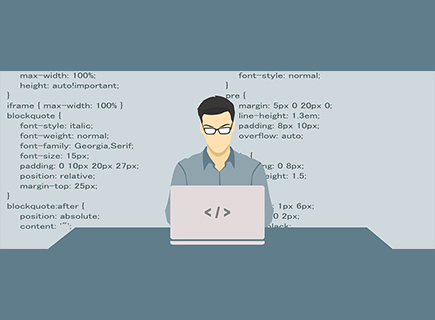Beginner’s Guide to Coding: Learning the Basics of Programming
Introduction:
Coding, or programming, is a valuable skill that empowers individuals to create software, websites, and applications. While it may seem intimidating at first, learning the basics of programming is accessible to beginners who are willing to dive into this exciting world. In this comprehensive beginner’s guide, we will explore the fundamentals of coding, providing you with essential information and resources to start your programming journey.
- Understand the Importance of Coding:
Coding is the language of the digital age. It enables you to bring your ideas to life, solve problems, and create innovative solutions. With coding skills, you can pursue a career in software development, web design, data analysis, and more. The demand for coding professionals continues to grow, making it a valuable skill in today’s job market.
- Choose the Right Programming Language:
There are numerous programming languages to choose from, each with its own strengths and purposes. Start with beginner-friendly languages like Python or JavaScript. These languages have extensive resources, active communities, and versatile applications. As you gain more experience, you can explore other languages based on your interests and career goals. - Learn the Basic Concepts:
Begin by understanding fundamental concepts such as variables, data types, operators, control structures (loops and conditionals), and functions. These concepts serve as the building blocks of programming and are applicable across various languages. Familiarize yourself with these concepts to develop a strong foundation for your coding journey. - Utilize Online Learning Resources:
The internet offers a wealth of resources for learning coding. Online platforms like Codecademy, Udemy, and Coursera provide structured courses, tutorials, and interactive exercises to help beginners grasp coding concepts. Take advantage of free or paid resources that align with your learning style and goals. Additionally, explore coding forums and communities where you can ask questions and seek guidance.
- Practice with Hands-On Projects:
Coding is best learned through practice. Start with simple projects that allow you to apply what you’ve learned. Build a basic website, create a calculator, or develop a small game. Hands-on projects help solidify your understanding of coding concepts and provide practical experience. As you advance, tackle more complex projects to challenge and expand your skills. - Seek Support from Coding Communities:
Engage with coding communities, forums, and social media groups to connect with fellow learners and experienced programmers. Participate in discussions, ask questions, and share your progress. The coding community is known for its supportive nature, and you can gain valuable insights and guidance from experienced individuals who have been through similar learning experiences.
- Embrace Debugging and Problem-Solving:
Coding often involves encountering errors and bugs. Embrace the process of debugging as an opportunity to learn and improve your problem-solving skills. Debugging requires patience, attention to detail, and critical thinking. By effectively troubleshooting issues, you’ll become a more resilient and resourceful programmer. - Read and Analyze Code:
To enhance your coding skills, study and analyze existing code written by experienced programmers. Read open-source projects, explore GitHub repositories, and review code samples available online. Analyzing code helps you understand different coding styles, practices, and solutions to common problems. It also exposes you to new concepts and techniques. - Collaborate on Coding Projects:
Collaborating with other programmers on coding projects is an excellent way to learn and grow. Join coding meetups, hackathons, or online collaborations where you can work with like-minded individuals. Collaborative projects provide opportunities to learn from others, gain real-world experience, and build a portfolio that showcases your coding abilities. - Stay Curious and Keep Learning:
Coding is a vast and ever-evolving field. Stay curious and embrace a lifelong learning mindset. Keep up with industry trends, new technologies, and programming paradigms. Continuously expand your coding knowledge by exploring advanced topics, attending workshops, and experimenting with new languages or frameworks. The more you learn, the more versatile and adaptable you become as a coder.
Conclusion:
Embarking on your coding journey as a beginner can be both exciting and challenging. By understanding the importance of coding, choosing the right programming language, learning the basic concepts, utilizing online resources, practicing with hands-on projects, seeking support from coding communities, embracing debugging, reading and analyzing code, collaborating on projects, and staying curious, you can develop a solid foundation in coding. Remember, persistence and dedication are key to mastering the art of programming. Embrace the learning process, celebrate your progress, and enjoy the limitless possibilities that coding offers.
